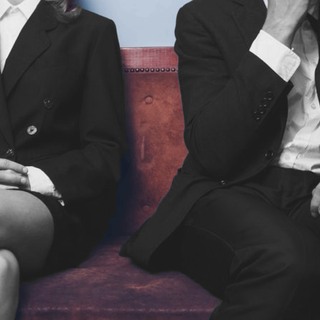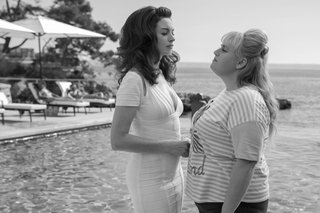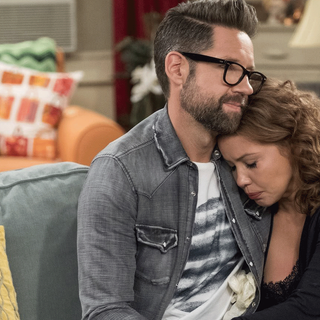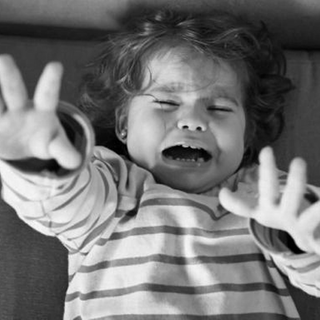
Dirty Rotten Remakes: Hollywood Fails Women With ‘The Hustle’
A shot-by-shot remake isn’t feminist just because it now has female leads.

During The Hustle, Anne Hathaway asks Rebel Wilson, “Why are women better suited to the con than men?” A funny answer from Wilson notwithstanding, Anne’s sage answer is “Because no man will ever believe a woman is smarter than he is.”
That is true of Hollywood, and especially true of whoever made this shot-by-shot remake of Dirty Rotten Scoundrels, itself a remake of 1964’s Bedtime Stories. Those films starred a suave Britisher and an American and played them off each other. The Hustle stars two Americans, perhaps demonstrating that even in this golden age of TV and global actors, Hollywood is Trumpian in its insistence that only a ‘Murican will do.
That’s not to take away from Hathaway or Wilson, who have both done bang up jobs. Sharp timing, excellent delivery and a general bonhomie mark their performances. This is Wilson’s second outing as a lead, after Isn’t it Romantic earlier this year, and we need more of her actually acting, versus only tossing zingers out.
Let’s recap this too-oft-told tale. Wilson is a small-time grifter in America and heads to Beaumont-sur-Mer on the French Riviera. Hathaway is a beautiful, sophisticated con artist who has become wealthy through her many schemes. They meet, Hathaway tries to con Wilson into leaving her territory multiple times, Wilson finally catches on and asks to be apprenticed. We have a lengthy montage of Wilson being taught many skills, none of which she uses, a la the Indian education system. Hathaway then uses Wilson in a con and refuses to pay her for her efforts, leading the latter to storm off – apparently all part of Hathaway’s grand plan to get rid of her. Alas, Wilson is stubbornly sticking around, and they agree to a bet – whoever scams a super-klutzy IT billionaire, played by Alex Sharp, gets to keep Beaumont-sur-Mer. They both try, get in each other’s way, assorted h-jinks and a ‘twist’ ending ensue.
The biggest, saddest problem with The Hustle is that it is not, in fact, hustling – the movie is a personification of a faithful caretaker who polishes up the metaphorical crumbling mansion entrusted to their care, duct-taping over cracks. In the vein of Disney’s live-action remakes of animated classics, The Hustle has all of the predictability of its predecessors, and very little of the plot-charm.
What’s worse, it also reduces everyone in the movie to tropes.
Our social media feeds are rife with the distress signals of #MeToo and the recent #YouKnowMe (a movement gaining ground in the U.S. to draw attention to the unjust, misogynistic abortion law passed by one of its states, Alabama). We are at a crisis point, where our dangerously gendered society has led to women, as well as men, suffering because of the asphyxiating stereotypes forced on us – from ‘she was asking for it’ and ‘boys don’t cry’ to ‘she’s doing it for the publicity’ and ‘he’s a man, what did you expect’.
And then there’s this movie, with two female leads – yay, you’d think. We’re breaking new ground. It’s not like one is going to be fat and coarse, the other pretty and elegant. It’s not like the pretty one will draw in the men and then the fat one will scare them away. There definitely won’t be a crude joke involving a chastity belt and the fat one, complete with pelvic thrusts.
Related on The Swaddle:
The SATC Feud and The Myths of Female Friendship
Needless to say, we all thought wrong. Hathaway always speaks softly, measuredly, effecting a pretty decent British accent for the most part – but clearly, she’s the sexy one, even in speech. Wilson, obviously, is not even considered capable of attracting a man and uses her cons to ‘punish’ men for not liking her – the irony of Hathway doing the same thing completely lost on the writers. The women are immediately pitted against each other – they’re either sniping at each other or threatened by the other’s very existence.
Even the billionaire tech whiz who is the mark, and the basis of the bet the duo agrees upon, fits a bumbling rich-guy-with-a-heart-of-gold trope – because Facebook was created for the most altruistic of reasons.
The most frustrating part is the film’s predictability. While the writers went all out in creating insults for Wilson and Hathaway to hurl at each other (the latter gets called an “animatronic cocktease”), they didn’t (or couldn’t?) update the plot at all. Why couldn’t there have been new cons? Why couldn’t Wilson’s character swan through a casino like Hathaway’s? Why couldn’t their mark have been another woman? Hollywood, you even retained the name of the doctor that Hathaway impersonates. Hathaway’s character makes a throwaway joke about the town of their affections being a lesbian community – if only. More women might have actually made this film better.
What saddens me is that the fate of The Hustle may actually be used by Hollywood execs to avoid actually involving more women – in writing, directing or even the creation of better women-led movies. Films starring women have actually been outperforming their male counterparts’ at the box office – and yet, we still have to make do with weak similes of scripts and plots. With fantastic offerings like Killing Eve, Orange is the New Black, Wonder Woman and even Captain Marvel breakingformula to deliver rounded, breathing female characters, this film is a bit of a travesty – not because of Hathaway and Wilson at all – but because of Hollywood’s refusal to invest in new ideas that are also women-centric.
Ultimately, The Hustle isn’t funny. Watching it, I was reminded of that old adage, “Whatever women do they must do twice as well as men to be thought half as good” – something my female boss had told me gently, a week into my first job. The actual quote ends with a wry “Luckily, this is not difficult,” – which makes the criticism that women face for doing an acceptable job or even making a mediocre movie all the more heartbreaking. The makers of The Hustle clearly figured that they could just make some superficial changes, and no one would be none the wiser. It’s not like women are actual human beings with their own thoughts and behaviour. Clearly no research or actual insight was needed – just great hair and makeup and a schmancy wardrobe, and women would be happy and give you their money, right?
One of the simplest tests we can use in daily life to determine if something is sexist is by asking if a man would have to do that, answer that, worry about that. Hollywood, I want to know – would you have asked two of your shiniest male stars to act in a terrible remake of an old hit? And would they have agreed?
Akhila Vijaykumar is a writer with experience across advertising and journalism. Occasionally, the crossover does make her demand truth from soap and try to cajole quotes into starbursts, but no harm no foul. She loves books by Terry Pratchett, dogs and pizza, often at the same time.
Related


Netflix’s ‘One Day at a Time’ Shows There’s No One Right Way to Cope With Mental Health Issues
